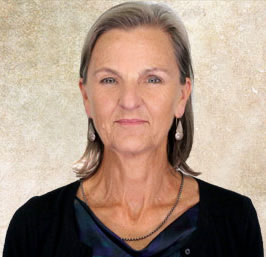Case #5: Engaging Staff in a Professional Development Program
CHARLOTTE BRACK, SWINBURNE UNIVERSITY OF TECHNOLOGY, AUSTRALIA
DISCIPLINE: Academic Development, Teaching Innovation, Higher Education
RESEARCH AREAS: Scholarship of Teaching and Learning (SoTL), academic development, networked learning
PURPOSE/CONTENT
Alignment of degree programs or courses to strategic institutional objectives requires a systematic ‘whole of course (program)’ approach. At Swinburne University, Australia, this includes a professional development program for team members, which addresses diversity of their roles and experience, focussing on learning-centred design to provide coherence and consistency in responding to strategies.
CASE EXAMPLE OF EDUCATIONAL LEADERSHIP
In 2019 Swinburne University entered Phase 2 of a major project of transforming learning and teaching, with the aim of aligning courses of study to strategic objectives, through a whole-of-course learning-centred design approach. This was supported through a Professional Development Program for development teams on course curriculum and learning design underpinned by scholarship. As the Director of the Learning Transformations Unit (LTU) I led the design and implementation of the Program in collaboration with faculty leaders and input from students and industry. This approach is intended to provide the impetus for uptake of the Program by staff involved in course development. The course design approach includes: visioning; development of a curriculum framework with a clearly articulated educational design; and mapping of learning outcomes and assessment aligned to the strategic goals. Team members are supported in completing the stages with aligned workshops on educational design and development at course; unit; and learning activity levels.
REFLECTING ON AND APPLYING THE FIVE-PILLAR MODEL
Recognizing the challenges of transformation across all courses, Swinburne University took a strategic approach to course renewal through centrally supported professional development. Such programs have been variably taken up by faculty members, often attracting the ‘converted’ with those most in need not engaging in professional development. The variable engagement reflects the complexity of learning design and its scholarship and the difficulty for staff to see a path to action and impact.
“The 5-Pillar Educational Leadership model of Fields, Kenny, & Mueller (2019) provides a useful lens for designing and implementing our Professional Learning Program to engage staff.”
The 5-Pillar Educational Leadership model of Fields, Kenny, & Mueller (2019) provides a useful lens for designing and implementing our Professional Learning Program to engage staff. The Program was developed collaboratively with diverse interdisciplinary stakeholder groups specifically to support course renewal but available to all staff. The collaboration drew on Affective Qualities by modelling benefits of co-creation of teaching and ensuring the Program offers relevant and personal outcomes for staff helping to frame academic identity (Clarke, Hyde & Drennan, 2013). The Program recognizes the diversity of staff enabling them to personalize a learning path. It encompasses two complementary approaches: ‘capability building’ that supports and enables learning centred course design offered through blended learning themed workshops modelling good learning design (Teaching Excellence) with an emphasis on innovation and transformative learning (Action-orientation); and ‘scholarly teaching’ including coaching and mentoring through Communities of Practice (Mentoring and Empowering). These approaches together provide a framework that supports teachers in conceptualizing their teaching from initial articulation of a course vision to learning and assessment activities, and opportunities to evaluate the impact of their teaching (Pedagogical Research).
IMPACT
The effectiveness of the Program initiated in 2019 for the course transformation project at Swinburne is yet to be determined. Impact will be measured in terms of engagement with the Program (participation), and articulation of the course (rigour and integrity) undergoing development. The latter will be assessed through evaluation of the course documentation against the guidelines and mapping criteria. Impact of a similar Program used by the author at another institution in 2018 was measured in terms of staff participation and feedback through evaluation survey and focus groups data (unpublished). Preliminary results showed that the approach positively influenced how faculty staff viewed their role, and empowered them to engage in scholarly activities related to learning and teaching. The ‘strategic academic’ perspective gave staff a way of connecting to their professional purpose and owning their academic identity. The layering of the program from whole-of-course design to blended ‘classroom’ activity and assessment design gave staff a pathway through which they could see benefits of engaging with the academic development opportunities offered
RELATED REFERENCES
Clarke, M. Hyde A. & Drennan, J. (2013). Professional identity in higher education. In B.M. Kehm & U. Teichler (Eds.), The academic profession in Europe: New tasks and new challenges, (7-22). Dordrecht: Springer. http://dx.doi.org/10.1007/978-94-007-4614-5_2
CURRENT ROLE

Dr. Charlotte Brack is currently Acting Director of Transformation & Learning at Swinburne University of Technology, Australia. In this role Charlotte leads core initiatives and activities, underpinned by the Scholarship of Teaching and Learning, which build the capability of staff for providing transformative student learning experiences across curricula, modalities, strategic initiatives and innovation. A central aspect of this work is an academic development program which offers personalized opportunities for staff to meet the strategic goals of the university. This requires collaboration across organizational units and leadership in the context of complex agendas.
NETWORKS
Council of Australasian University Leaders in Learning and Teaching (CAULLT)
Higher Education Research and Development Society of Australasia
Australasian Society for Computers in Learning in Tertiary Education
Society for Learning Analytics Research